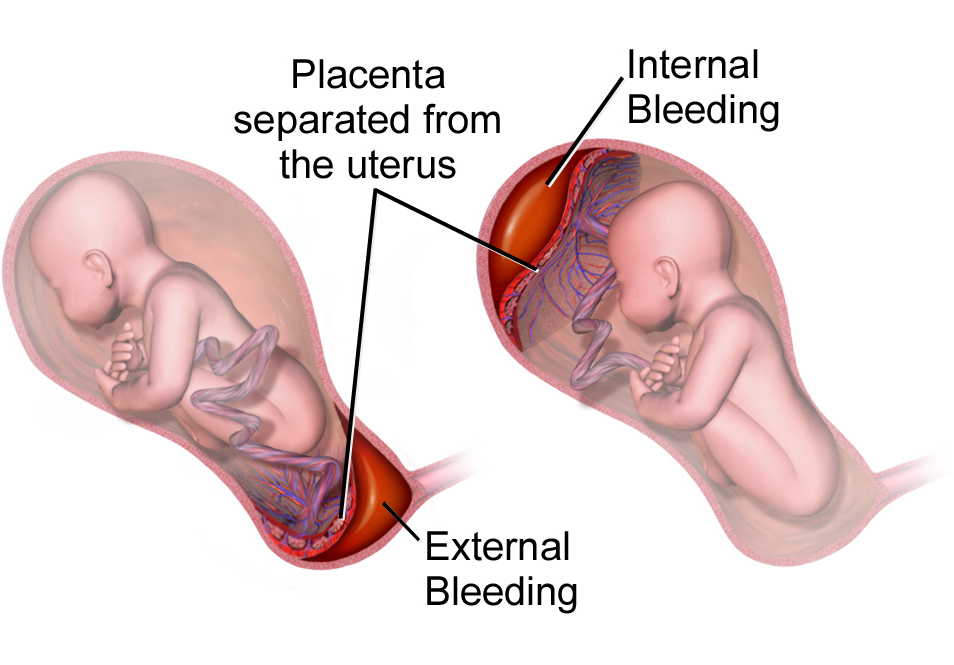A sudden interruption of the normal functioning of the placenta in pregnancy may lead to a condition known as abruptio placentae. This condition often leads to secondary bleeding. This is a condition which, although rare, can occur suddenly and can also be a very serious problem.
The sudden interruption of the normal functioning of the placenta in pregnancy is a result of either an abnormality in the placental circulation or the placental hormones. This can cause a clotting disorder in the woman, with an increased risk of serious secondary bleeding (sepsis). A ruptured placenta can also lead to the transfer of blood from the brain to the bloodstream. There is also a higher chance of miscarriage and stillbirth.
Sudden interruption of the placenta is not something that happens to everyone. A woman will have to suffer from sudden unexpected loss of a baby before she has to experience the complications of abruptio placentae. Women who have undergone a C-section are more likely to develop this condition. The placental cord does not have the necessary blood supply to keep it moving. It becomes engorged and becomes a potential blood vessel for an abscess.
If a woman has a C-section, there is a greater chance of the placental circulation being interrupted during the procedure, thereby causing a potential for placental rupture. The umbilical cord becomes compressed, thus making the flow of blood through the cord difficult. The absence of a good supply of blood in a pregnant woman is also likely to cause placenta abruption. Another factor that increases the risk is obesity, particularly when women reach menopause. When the woman has an abnormally large uterus, the blood vessels in her uterus become engorged and the potential for placental rupture increases.
There are a number of causes of the sudden interruption of the placental circulation. These include:
These are the most common factors leading to sudden interruption of the placenta during pregnancy. It is important for any woman who has ruptured the placenta to consult with her obstetrician about possible complications. treatment options.

Infant birth and other complications can also be caused by sudden disruption of the placental circulation. A baby is usually born unharmed, but sometimes he or she suffers from a stroke or other brain injury that can cause immediate and permanent brain damage. In many cases, the baby is unable to feed or suckle properly. In these cases, the only way to diagnose sudden placental arrest is with ultrasound.
Mothers need to remember that a sudden, unexpected birth can be devastating. Don't panic if you've had a C-section. There are many reasons for sudden stoppage of the placenta, and your midwife will be able to advise you on how best to proceed to ensure your baby's well-being.
As stated earlier, compression of the umbilical cord of the placenta can cause placental abruption. This is usually caused by rupture of one of the sacs of the placenta
Most often, the rupture of the placental cord is caused by the discharge of amniotic fluid. This fluid, which is the lining of the endometrium, is pushed through the wall of the uterus into the amniotic sac and then into the baby's body. In some cases, the gap is so large that it is easy to see on ultrasound.
A sudden rupture of the placenta can also be caused by too much amniotic fluid in the sac. Sometimes, fluid in the pouch gets into the abdomen and the pouch ruptures, which can lead to detachment of the placenta. This is usually caused by the use of amniocentesis or chorionic villus sampling. When a baby is born, he may appear disoriented due to the loss of blood supply.
Placental rupture is generally a painful experience and can be treated with pain killers and antibiotics. The only treatment option for placental abruption is to allow the infant to go home, in order to avoid further complications and pain.